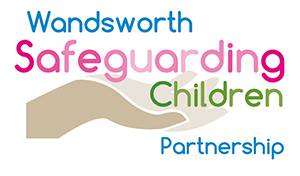The fact is that most young people don't have sex until they are over 16, so some of what they hear could just be bragging because the other young people also think everyone else has done it except them.
Before a young person has made the decision to have sex for the first time, it is best to advise them to try and talk to their boyfriend or girlfriend about how they feel and what they are comfortable with. It should be a decision that they both make together, and they will need to talk about contraception and safer sex. They are both responsible for protecting themselves and each other from sexually transmitted infections and unplanned pregnancy.
Contraception
If a young person has made the decision to have sex then it is important to consider things like contraception. Even if they trust their partner, one can't tell by looking whether they have a sexually transmitted infection (STI). They might not even know they have one, as sometimes there are no symptoms.
Condoms are the best protection against both pregnancy and STI's. They come in a variety of sizes and varieties and are FREE from family planning clinics, genito-urinary medicine clinics (GUM, or sometimes known as sexual health clinics) and some local youth clubs and Connexions bases. For further information on where to get them in Wandsworth and the rest of South West London go towww.gettingiton.org.uk or call 0800 28 29 30.
There are also other forms of contraception, which they may want to consider using, alongside condoms, such as:
- Contraceptive pill
- IUD (otherwise known as the 'coil')
- Injection ('Depo')
- Implants
- Diaphragms ('the cap').
Young people can go along for a chat with their doctor, nurse or a health advisor at a young person's clinic, to get more information and decide what's best for them. Once they have decided, the contraceptive method can be prescribed to them for FREE.
If young people have had unprotected sex, the condom has split or the girl has forgotten to take her pill, then don't panic. Emergency contraception (often known as the morning after pill) is available and can prevent pregnancy in most cases if taken in time. It can be taken up to 72 hours after unprotected sex. However, it's more effective the sooner it is taken, so it's best to act fast.
Young people can get FREE emergency contraception from lots of places in Wandsworth, including family planning clinics, GUM clinics, most GP's and some pharmacists. To find the nearest place, go to www.gettingiton.org.uk or call 0800 28 29 30.
Alternatively, an IUD ('the coil') fitted up to 5 days after unprotected sex. The IUD is a small plastic and copper device that is put into a girl's uterus (womb) by a specially trained doctor or a nurse.
Sexually Transmitted Diseases (STIs)
If young people have had unprotected sex or the condom split there is a chance they could have caught an STI. The best thing to do is to go and get tested at a GUM clinic as soon as possible. There are three young people only clinic sessions (for those aged under 19) in Wandsworth and they are all free, friendly and confidential. The details are available on www.gettingiton.org.uk or by calling 0800 28 29 30. The more general GUM clinics are also open to all young people as well, even if they are under 16.
Chlamydia is the most common STI amongst young people. It is estimated that about one in ten 16-24 year olds have Chlamydia, so it's pretty easy to pick it up. The problem is that you often do not have any symptoms; therefore won't know that you have it. It is important to know because if left untreated it can lead to infertility. However, it is easy to treat with a simple course of antibiotics, if caught early.
Pregnancy
If a young person thinks she or his partner might be pregnant the first thing is to find out for sure by taking a pregnancy test. A FREE test and confidential advice is available at any family planning clinic, GP or GUM clinics in Wandsworth (see www.gettingiton.org.uk or call 0800 28 29 30). Alternatively, they can buy a test from a pharmacy or supermarket.
It is recommended that young people talk to a professional so that they can discuss the options that are open to them. Anything they talk about will be kept confidential except is child protection issues are raised. These issues will be discussed with young person and might need to be shared with other appropriate agencies. No one else will be told a young person is pregnant without it being discussed with them first.
Further information
If a young person needs further information or advice on any of the above areas the following organisations and websites can help. All are free, friendly and confidential.
Total Health at Wandsworth (TH@W) 020 8355 3473 - Offer info, advice and one to one support on issues relating to sexual health, drugs, alcohol, pregnancy and emotional health for those aged 19 and under.
Brook 0800 0185 023 - Sexual health info for under 25's.
Fpa 0845 122 8690 - Info on contraception, STIs, planning a pregnancy, pregnancy choices and general sexual health.
GUM clinics
GUM clinics for 18's and under Screening for STI's, free contraception, free pregnancy testing and someone to talk to about any aspect of sexual health and relationships.
- The Point Battersea at Stormont Road Health Centre - 020 7441 0700
- The Point Tooting at Courtyard Clinic, St George's Hospital - 020 8725 3342
- Rush at Roehampton Clinic, Queen Mary's Hospital - 020 8487 6861/6862
